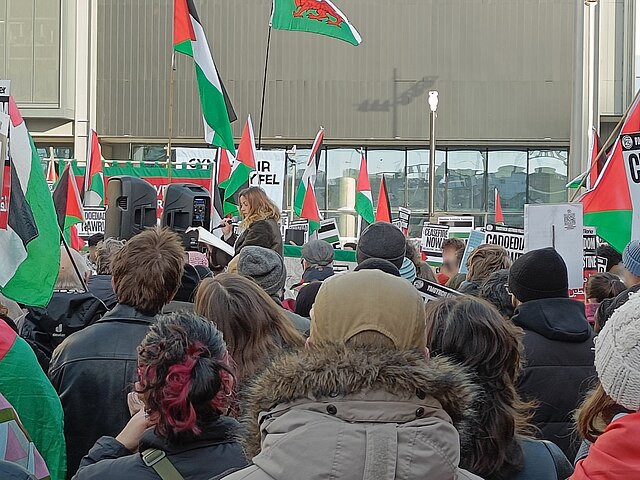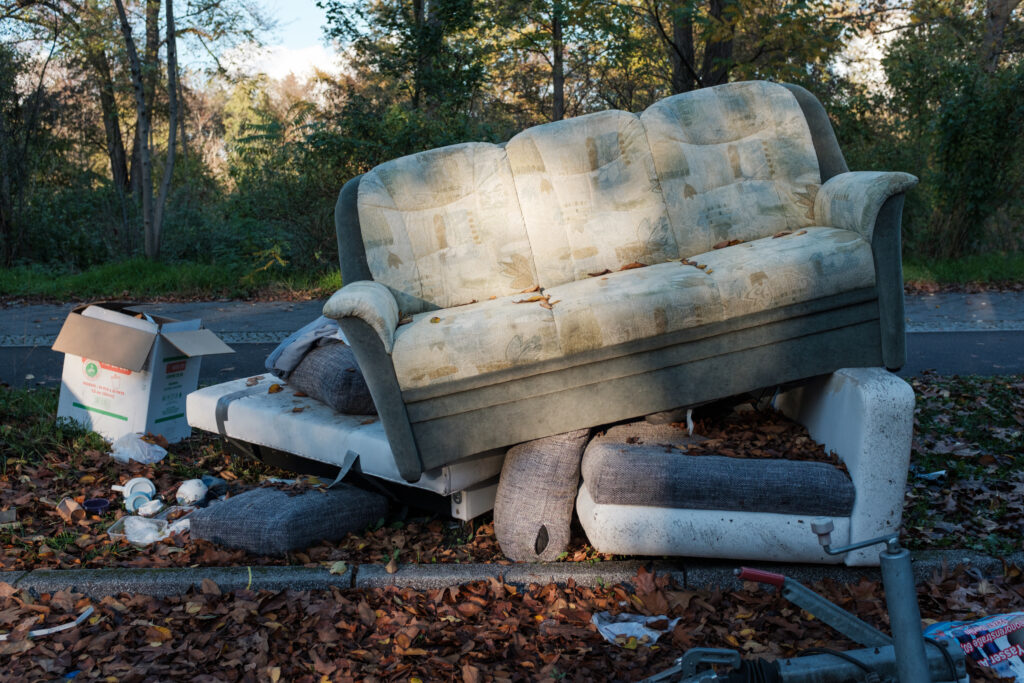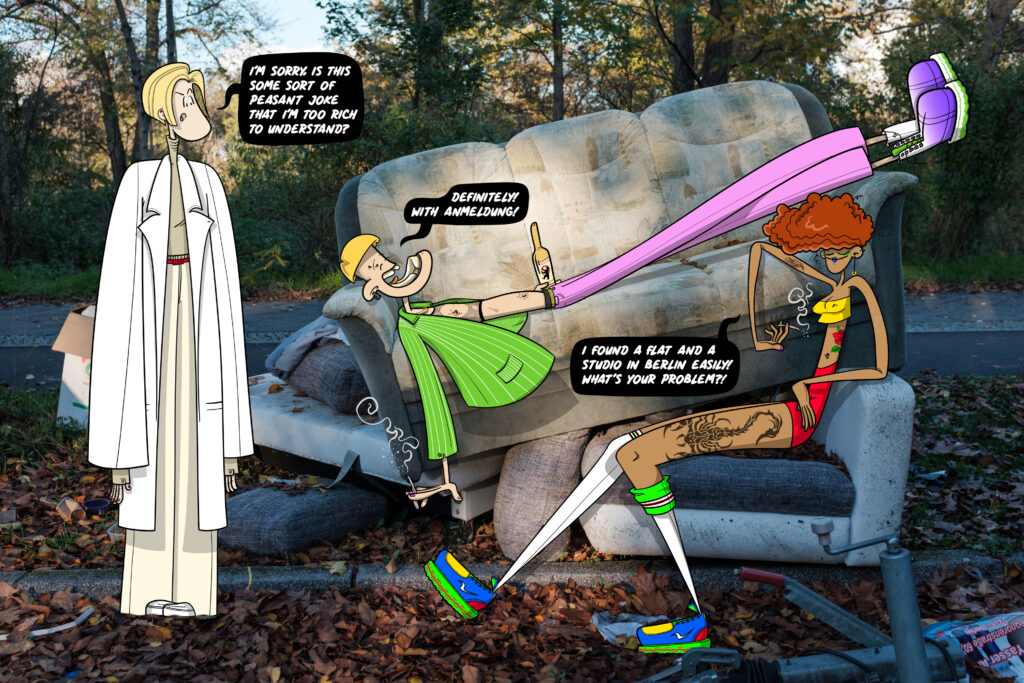Tell our readers about yourself
My name is Ilya Kharkow. I’m the author of the novel THE MINING BOYS. A year and a half ago I fled Ukraine. I am here to remind each of you that your life is more than a political compromise.
What do you mean by this?
Today in Ukraine, being a guy means being a mobilization reserve, not a human.
Recently, I learned that only 3 countries in Europe don’t compel men to participate in war in the event of martial law: Germany, Sweden, and Switzerland.
I hope this is a mistake. But if it’s true, then we have problems. And I want to talk about it.
So, you think there is no need to defend a country?
If that’s your sincere desire, then do it. But I believe that you can’t become a hero by force. No one has the right to demand that you risk your life for anything. Why? Because your life is the highest value. If you do not realize the value of your own life, then you should not expect the state to do it for you in the midst of war.
What if the highest value for someone is not their life, but, for example, their family?
Protecting a family doesn’t mean going to war. Protecting a family means staying with a family during difficult times.
I grew up without a dad, and it made my childhood uneasy. That’s why I don’t understand how married guys with kids can leave them.
I was 3 years old when my dad left the family. It’s because of that I remember my early childhood well. That period that healthy children usually forget. If you dare to make love in front of an infant, hoping that he doesn’t understand what is going on, remember my story because I remember well how my parents did it. But you know, without these memories, my books might not contain so many intimate descriptions.
But guys don’t always leave their families voluntarily. As far as we understand, only a small percentage of men are not subject to mobilization.
This is one of the reasons why I say that forced mobilization is a crime. The state demands that you choose protecting its borders over raising your own kids. And then your kids end up in single-parent families, where they grow up to be artists unadopted to life, yeah, I know what I’m talking about.
A guy is not taken to war only if he has 3 or more kids. But on the Internet, you can easily find videos of blind people receiving summonses. I once saw a video where the military forcibly took a guy with amputated wrists to the military registration and enlistment office to check his suitability for military service. This inspired me to write the story “WOULD YOU TOUCH IT?”
Tell us more about your position on the war.
So, try to step back from the image of war that news imposes on us, and you’ll see a fight of 2 systems. There is no good here. No bright side. There are just 2 systems, and each invites you to take someone’s side. But often, when you’re forced to choose between 2 options, it’s worth choosing a third.
Quality of life. Citizens’ happiness index. What exactly are we defending? Is it someone else’s right to send us to the front lines and destroy our homes in a sake of saving the whole world?
By conducting mobilization, the Ukrainian side has done exactly what it frightened us with when describing mobilization in Russia. I remember with what glee Ukrainian TV presenters talked about Russian mobilization points opening on the border with Georgia. Meanwhile, Russian borders are open, and Ukraine’s borders have been closed to guys for two years now, and for these two years, there has been a real hunt for guys in the country.
The goal of Ukrainian checkpoints is no longer to repel enemy advances, but to catch guys on the roads and send them to their deaths. And yet, we were told that there is only one enemy, and we believed it.
In defending democratic values, it would be worth asking how things are with them in Ukraine. Corruption? Exists. Homophobia? Exists. Discrimination based on language? Now this is a big issue too. Can a corrupt person lead the fight against corruption? So why do we believe that a country that is destroying democratic values before our eyes can defend these same values?
Could you tell us more about discrimination based on language?
In Ukraine, there is aggressive Ukrainization happening, which is causing concerns. This is not a matter of culture; it is a reason for hatred among the population.
I’ll just tell you a story. Here’s what recently happened to me while walking in a residential area of Lisbon. I stumbled upon a library. On the window hung a yellow-blue sign: “BOOKS FOR UKRAINIANS.” Books for me are like insulin for diabetics. So naturally, I go inside. A middle-aged woman proudly points to a small shelf with books, but they were all in Ukrainian. I ask if they have books in Russian here? I was told there were two, but they “disposed of” them. Why? Because they support Ukrainians.
I’m not surprised that a random woman from Portugal doesn’t know that for historical reasons, for half of Ukraine’s residents, the native language is Russian, not Ukrainian. But now this is forgotten even inside the country.
Maybe this shows changes in society if, as you say, in Ukraine they have forgotten that half of the country’s inhabitants consider Russian their native language?
Yep, it really shows the changes in society. Indeed, a certain percentage of Ukrainians have transitioned to the Ukrainian language. I also tried to communicate in Ukrainian at the beginning of the war. But like many of my friends, I have switched back to Russian.
Having lived for two and a half months in western Ukraine at the beginning of the war, I vividly saw the intense hatred locals harbor towards everything Russian, even towards me as a speaker of that language, as if I were the cause of the war. The song to which I lost my virginity is considered an enemy song by people from western Ukraine, but for me, it’s a cherished memory.
I understand why one might harbor negative feelings towards a political force, but I don’t understand why one would hate a culture. Have Kropotkin’s ideas become worse because the Russian army entered Ukraine back in 2022?
How do you feel about Russian culture today?
I’m a philologist and a writer, and therefore I cannot imagine my life without literature. I consist of French, German, and Russian literature. It’s important to understand that all of these are not separate parts of an abstract literature, but rather a continuous dialogue of dozens of writers that has been going on for centuries.
I cannot imagine that because of the actions of modern politicians, I would change my attitude towards any of these figures. But they have long been dead and, to some extent, defenseless. I believe that we must stand in defense of culture, regardless of the nationality of its creators, because high culture knows no borders.
Yet, in Ukraine, Russian culture is being cancelled. This is a normal primary reaction in wartime. But only primary! Now it’s been two years. For example, in Russia during World War I, German culture was cancelled. Now, however, the German language is again one of the most popular foreign languages to study.
It is important to understand that only someone who truly doesn’t know the value of culture can give it up. Once, Americans traded Manhattan Island with the Indians for beads worth $24. By canceling part of culture, we are not only voluntarily giving up Manhattan, we are even giving up the beads.
If you could return to Ukraine without consequence, would you?
Recently, I formulated the definition of home to me this way – my home is where my books are.
I desperately tried to escape from Ukraine for almost 9 months. The day it happened, I consider my second birthday. The question is not whether I would return to Ukraine. The question is, would all those who are currently trapped in that country against their will want to leave and live in a world without borders between countries, without language barriers, and without military conscription? This is how I envision the world of the future.
Would you fight for such a world?
You can’t fight for peace. War is destruction, and deep inside, everyone knows that. I’m sure that war cannot be stopped with weapons, just as you can’t calm a storm by throwing stones into the waves.
Peacekeeping forces are still military forces. I am against any violence because I see that violence only creates more pain. If you don’t share my viewpoint, then fight, but don’t drag peaceful people into it. Everyone should have the right to refuse military service.
Can you tell us about your hometown?
My hometown has been under occupation since the first days of the war. Nearby is a nuclear power plant, so there is a huge number of Russian militaries in the town.
From time to time, the Ukrainian army fires at Russian troops in my town, and then the homes of my relatives suffer. It’s a small town. In the scale of this war, it can be destroyed in a couple of hours, and it will take years to rebuild it. Nearby villages have already been destroyed. What should I feel when the Ukrainian army fires at my town? Should I be a patriot of my country or my family?
What do you think about the concept of patriotism?
A musician Andrey Lysikov, better known as Dolphin, summed it up perfectly: “A state that orders to kill children will always call itself the homeland.”
What is your view on Ukrainian nationalism pre-war, was it very prevalent?
In Ukraine, like in any other country in the world, there were and are radicals. They are everywhere, but in different percentages. I cannot say that in Ukraine the radical layer was frighteningly large. But of course it exsists.
Nevertheless, the truly dangerous ones, in my opinion, are those who are talked about least. People whose loved ones died in the war, who now wish for others to share their sorrow. They wish for other kids to go to war. They actively contribute to this. These are the truly dangerous people.
They act quietly. All these dear old men and intelligent aunties. Those faceless coat wearers who give way to you at traffic lights and wish you a good day at a supermarket. Kids are suddenly left without brothers and dads. They have no other idea aside from revenge. They have no ideals. They don’t want to build a new, fair country, they just want revenge.
In Lviv at the beginning of the war, dear old people did not allow my friend into a rented apartment, demanding that he first go to the military registration office and showed a confirmation that he was there. I described that Lviv period in THE MINING BOYS.
Do you have any ideas what can be done about this?
Here, it’s not weapons and violence that can come to our aid, but culture. This is why cancel culture is dangerous. It is dangerous to allow culture to be canceled in wartime.
Nietzsche wrote that culture is only a thin apple peel over seething chaos. What would remain for humanity if we remove this apple peel? Unfortunately, war shows us how little may remain. But we can and must resist this chaos by standing up for culture, elevating it above national characteristics.
How does the Ukrainian government treat guys abroad?
Oh, this is an interesting question. For example, Ukraine has banned us from using consular services. It’s not a direct ban, but without a document exempting you from military service, the consul won’t see you.
Ukrainian officials have reached out to the leaders of European countries, asking them to close integration programs for Ukrainians.
Every couple of months, there are reports that Ukrainian men are about to be deported at Ukraine’s request. So, if Ukraine isn’t my enemy, then why am I forced to defend myself against it?
There are many major and minor crimes happening daily. But if every person had the right not to participate in war, an absolute right, then there would simply be no basis for these crimes. War should either be voluntary or waged against those who compel you to it.
Any final words you would like to say?
While most of us are preoccupied with the idea of defeating the big enemy, we have stopped noticing how this fight is destroying the lives of ordinary people. Right now, both in Russia and Ukraine, a huge number of guys are suffering from mobilization. If we don’t give a damn about the lives of a few, then what is our society and our peace worth?
For more information about Ilya Kharkow, see his website. You can support his work by buying him a coffee.






